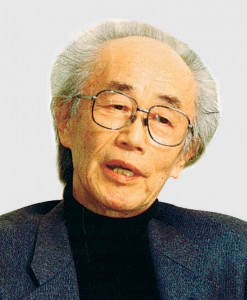[By Katsuto Uchihashi, economic critic]
With less than three months before the United States presidential election, Republican nominee Donald Trump still has not stopped making outrageous remarks.
When Trump announced his candidacy for the 2016 presidential election, he was seen only as a minor candidate. However, it was his wild, populist messages that has created a fierce political sensation and propelled his candidacy from the fringes of the race to the summit of the Republican nomination leaderboard. His roars, which made people excited, can be symbolized by his famous remark: “I will build a great, great wall on our southern border. And I will have Mexico pay for that wall.” Wherever he went, Trump’s supporters welcomed him, chanting “Build that wall!” And surprisingly, in July, Republicans officially adopted a platform which includes a commitment to build a wall along the U.S.-Mexico border.
Currently, the world’s superpower and its people are filled with this monstrous “victim mentality,” the notion that the nation is being trampled on by the influx of illegal immigrants.
But how was illegal immigration – mainly economic refugees – created? The rest of the world has not forgotten the other side of America, that is, America which is responsible for creating migration flows.
Trade agreement that benefited the U.S.
In January 1994, the North American Free Trade Agreement came into force with the aim of liberalizing all trade and investment among the U.S., Canada and Mexico. The agreement was approved by U.S. Congress in November 1993, and it was Bill Clinton, U.S. president at the time and the husband of Democratic presidential candidate Hillary Clinton, who signed it into law the following month. Since then, NAFTA has brought enormous profits to the U.S. which took the initiative.
At the same time, Mexican farmers, who occupied about 20 million out of the nation’s population of 110 million, rose in a riot against the agreement. It was regarded as the desperate cries of farmers whose corn crops – their staple food and also the foundation of their culture – were at stake.
NAFTA bringing drastic change to Mexican people’s lives
Tortillas and tacos made by wrapping tortillas around a filling are the Mexican staple food. Unlike tortillas made in the U.S., Mexican tortillas are made from native white corn variety called criollo.
However, the Mexican people’s lives changed totally after NAFTA took effect. Highly productive, extraordinarily low-priced U.S. corn poured into the Mexican market, taking away the share from domestically produced products. In 2008, tariffs on imported products were abolished completely. Then another change hit the corn market. The rise of an energy revolution based on the use of corn as a prominent biofuel led to soaring import prices of the crops. Corn, an inevitable part of Mexican people’s lives, flowed back to the U.S.
Their diet was not the only thing tossed about by the changes. Many farmers were forced to give up their business, as the Mexican government’s subsidies for corn producers were abolished. Many of such people who lost their jobs ended up becoming economic refugees and headed for the U.S. It is the flow of such people that Trump is trying to block by building a wall which is said to cost about 10 billion dollars (1.1 trillion yen).
A leader of a Japanese nonprofit organization which succeeded in preventing the OECD from continuing negotiations on the Multinational Agreement on Investment in 1998 said: “The U.S. was well aware beforehand of what NAFTA would bring about. The U.S. government dispatched over a hundred thousand military personnel to the Mexican border to get ready for the possible influx of people who were driven away from farms rushing to the border as illegal immigrants. They also knew that genetically modified corn would drive native Mexican criollo corn out of the market.”
The U.S., which got a taste of a success from NAFTA, turned to OECD member countries to conclude the MAI. After the negotiations on the MAI failed due to fierce protests by over 1,000 nonprofit organizations worldwide, the U.S.’ next target was the Trans-Pacific Partnership free-trade talks. The U.S. is becoming more arrogant than ever.
It is so unseemly for the U.S., which is chiefly responsible for creating so many economic refugees, to act like a victim.
<Profile> Born in Kobe in 1932, Katsuto Uchihashi became an economic critic after working as a newspaper reporter.


